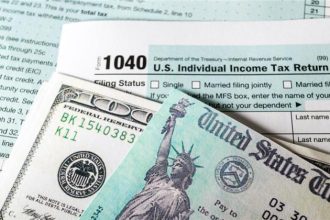Navigating the world of commercial real estate rates can often feel like a complex maze. In this evolving landscape of the commercial property market, mortgage rates serve as the compass guiding your investment decisions. Whether you’re a seasoned investor or a novice entrepreneur, understanding the ins and outs of commercial mortgage rates is crucial.
This article will simplify this often perplexing subject, shedding light on key factors impacting commercial mortgage rates and offering practical strategies to optimize your investments.
Current commercial real estate rates.
In today’s commercial real estate landscape, we’re experiencing a unique set of market conditions. It’s important to keep in mind that commercial mortgage rates aren’t static and they can fluctuate based on a variety of factors including economic trends, market demand, and lender policies. As of April 2024, we’re seeing rates that range from about 6% to 15%, depending on the specific circumstances of the loan.
Key elements of commercial real estate rates.
Let’s kick things off by diving into the primary elements that shape commercial real estate rates, so you can better navigate the market and make informed investment decisions.
Market conditions
Overall market conditions play a role in determining commercial real estate rates.
Economic factors
Commercial mortgage rates are influenced by broader economic conditions, such as inflation, economic growth, and the overall health of the economy.
Interest rates
The general level of interest rates in the economy—often indicated by benchmark rates such as the prime rate, LIBOR (London Interbank Offered Rate), or the U.S. Treasury yields—can impact the rates offered by lenders.
It’s important for borrowers to carefully consider these factors and work with lenders to secure the most favorable terms, based on their financial situation and the specific details of the commercial property transaction.
Property-specific factors
Property type and location will also impact your final rate.
Property type
Different types of commercial properties may have varying risk profiles, affecting the interest rates. For example, rates for office spaces might differ from those for industrial properties.
Location
The location of the property can impact rates. Properties in high-demand or economically thriving areas may have lower rates compared to those in less desirable locations.
Borrower’s creditworthiness
Your creditworthiness and general financial situation will impact your rate.
Credit score
The creditworthiness of the borrower is a crucial factor. Lenders assess the borrower’s credit history, financial stability, and debt-to-income ratio to determine the risk associated with the loan.
Business financials
Lenders may also evaluate the financial health and performance of the business occupying the commercial property.
Loan-to-value (LTV) ratio
The loan-to-value (LTV) ratio is another crucial factor that impacts commercial mortgage rates. Essentially, the LTV ratio is the percentage of the property’s value that you’re looking to finance with the loan. If you’re looking for a high LTV ratio, it means you’re seeking to borrow a larger portion of the property’s value, which could present a higher risk to the lender. Because of this increased risk, you may find that higher LTV ratios are typically accompanied by higher commercial mortgage rates.
Loan term and amortization period
Rates will also vary based on the length of the loan and the repayment schedule.
Loan term
The length of the loan term can influence the interest rate. Shorter-term loans may have lower rates but higher monthly payments, while longer-term loans might have slightly higher rates but lower monthly payments.
Amortization period
The time it takes to repay the loan (i.e. the amortization period) can also impact the interest rate. A longer amortization period may result in a higher overall interest cost.
Lender’s policies and competition
Every lender’s rates are impacted by its investment portfolio and competition.
Lender policies
Each lender may have its own criteria and policies, impacting the rates they offer. Some lenders may specialize in certain property types or industries.
Competition
The competitive landscape among lenders can affect rates. Borrowers may get more favorable rates if lenders are competing for their business.
Fixed vs. variable rates
Commercial mortgage rates can be fixed (i.e. unchanging throughout the loan term) or variable (i.e. fluctuating based on market conditions). Fixed rates provide stability, while variable rates may offer initial cost savings but involve more risk. Borrowers should choose the type of rate that aligns with their financial goals and risk tolerance.
SBA 504 loan rates: A closer look.
For entrepreneurs seeking to finance major fixed assets like real estate or equipment, the Small Business Administration’s (SBA) 504 loan can be a great option. The SBA 504 loan is known for its competitive and predictable rates, making it a popular choice among borrowers.
Fixed-rate loans under this program are tied to U.S. Treasury bonds, which typically carry some of the market’s best rates. The rates for SBA 504 loans are set when the SBA sells the bond to fund the loan. This means borrowers can lock in a low, long-term fixed rate, protecting their business from future interest rate increases. The 10-year Treasury rate as of April 2024 is 4.20%.
It’s also essential to understand that SBA 504 loan rates include two different loans—one from a Certified Development Company (CDC) and one from a bank or other financial institution. The CDC loan, which covers up to 40% of the total project cost, has a fixed interest rate. In contrast, the bank loan, covering 50% or more of the total project cost, can have a variable or fixed rate, depending on the specifics of the agreement.
Remember, despite these attractive rates, it’s important to consider all aspects of your financial situation and business goals before deciding on a loan product. Consult with financial professionals to make sure you’re making the best choice for your business.
Wrapping up
Understanding commercial real estate rates can seem like a daunting task, but it doesn’t have to be. By familiarizing yourself with the primary elements that influence these rates, and keeping an eye on current market conditions, you’re already on the right path. Whether you’re considering a traditional commercial mortgage or exploring options like the SBA 504 loan, remember that the best choice will depend on your unique financial situation and business goals.
Quickly compare loan offers from multiple lenders.
Applying is free and won’t impact your credit.
Information provided on this blog is for educational purposes only, and is not intended to be business, legal, tax, or accounting advice. The views and opinions expressed in this blog are those of the authors and do not necessarily reflect the official policy or position of Lendio. While Lendio strives to keep its content up-to-date, it is only accurate as of the date posted. Offers or trends may expire, or may no longer be relevant.
Read the full article here
















